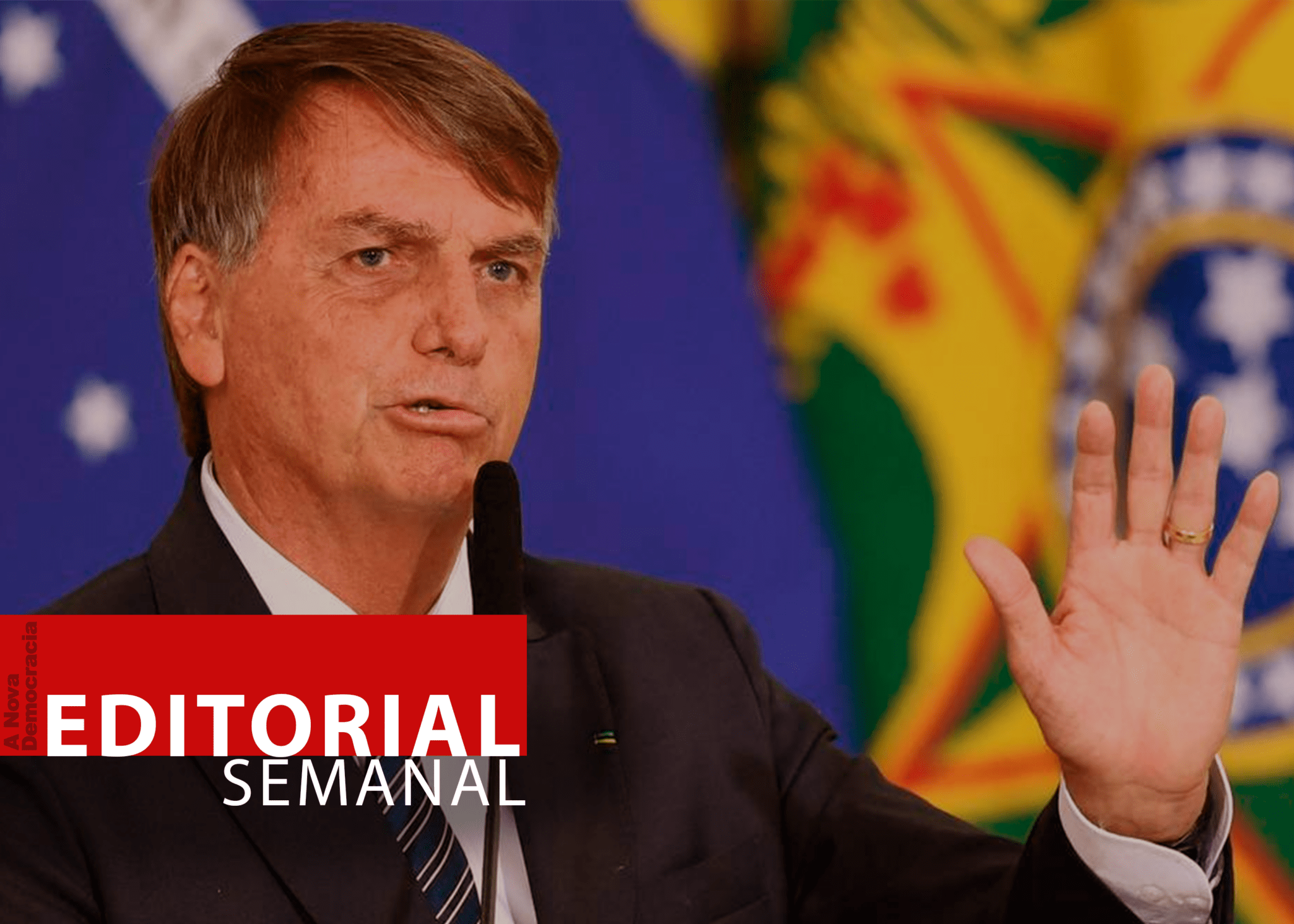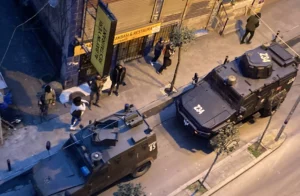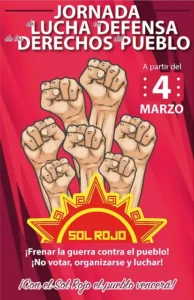
AND: Weekly Editorial – Even more favorable terrain for the Revolution
Hereby we publish an unofficial translation of the Weekly Editorial of A Nova Democracia.
To change the development of the events, the generals of the High Command will have to pay much more than they would have paid, for example, in 2017. There is no doubt that the situation for the popular and revolutionary struggle has become even more favorable.
The counter-revolutionary offensive of the High Command of the Armed Forces (ACFA), which is about to complete nine years, lost the initiative after the disastrous riot on 8th of January of 2023, even more so now with the progress of the investigations. The Armed Forces lost a large part of the “legitimacy” that they claimed to have due to their actions during the Bolsonaro’s government, which were criminal attacks against the people and the Nation, as many of their coup plots came to light. Additionally, its image as a “holy and pure”, “incorruptible” institution had already crumbled, when complaints emerged due to the overpricing in its supplies, the brutal inequality of salaries between the low ranks and the high rank officers, without even mentioning the administration with interests of the Covid-19 pandemic. But why has the ACFA’s counter-revolutionary offensive the terrain more unfavorable to them?
When the then Army commander, Eduardo Villas-Bôas (representative of the hegemonic right in ACFA) said in 2017 that “the Armed Forces must be silent protagonists so that society knows that the crisis will not exceed certain limits ”, and launched the slogans of “legitimacy, stability, legality ”, was establishing a military intervention plan. All the concerns and scenarios thought by the ACFA were centered on two aspects: on the one hand, it was necessary to centralize the reactionary institutions by making them work under a single reactionary plan formulated by them, to face a scenario of popular uprising; additionally, it was necessary to subject such institutions as much as possible, without clashing with the legal order, without appearing to be a military coup, in order to not generate resistance from the majority of society and even from other institutions, which could end up losing space in Political Power. It was the Armed Forces’ intervention plan in national political life willing to prevent the worsening of the revolutionary situation, which had redeveloped after the Popular Uprisings of 2013-14. In this plan, an institutional rupture would only be justified as a last resort; or, in the words of Villas-Bôas and other so-called “legalist generals” (read, the hegemonic right in ACFA): institutional rupture would only be in the case of what he calls a “social crisis”, to safeguard the “constituted powers” . A covered coup, in short, that would only be unveiled in extreme cases.
The movements of the Bolsonarist extreme right, seeking to dispute the direction of the counter-revolutionary offensive and precipitate the institutional rupture, generated a situation that, today, the reactionary Armed Forces were once again unmasked as essentially coup plotters. The investigations brought to public all the rottenness in the Armed Forces, all the elements of the coup preparations, showing that – yes – Brazil was close to returning to a military regime, whatever the result, and that this is not “a thing from past”.
Let’s see the practical result of the ACFA’s right-wing plan. This, which intended to carry out the military intervention gradually to remove what it considered an excess of power from the STF, today finds itself being investigated by a much stronger STF, which concentrates more functions than it had before. Congress, which according to the ACFA plan should have less power and functions, today has control not only over the country’s political agenda, but over the most important part of the Budget itself; Congress has never been more powerful. Today, culminating the military intervention with the closure of the regime by force in an attempt to combat a popular or revolutionary uprising will produce resistance ten, a hundred times bigger, from various segments of society, including right-wing and reactionary ones; a military coup “to safeguard the powers” is much less justifiable today than it was in 2017, even for the traditional right. All institutions, which according to the ACFA plan should be centralized, have become even more ambitious in their struggle for political power: the STF “runs over” Congress and the latter wants to subject the STF to itself; the Chamber of Deputies “runs over” the Federal Senate; the National Congress controls the federal government, etc. Consequently, the political crises grows, the tendency towards the ineffectiveness of the government system, the unmasking of political characters in front of the masses and the growing discredit of institutions in front of the people. Everything leads to the intensification of the classes struggle, to the worsening of the revolutionary situation that the ACFA, in 2015, intended to calm, when it launched its preventive counter-revolutionary offensive.
Despite maintaining high vigilance against the coup – as it has not been defeated strategically, and has not been averted in the short term –, it is necessary to recognize that the path to military intervention is more unfavorable. To change the development of the events, the generals of the High Command will have to pay much more than they would have paid, for example, in 2017. This is the main point. There is no doubt that the situation for popular and revolutionary struggle has become even more favorable.

